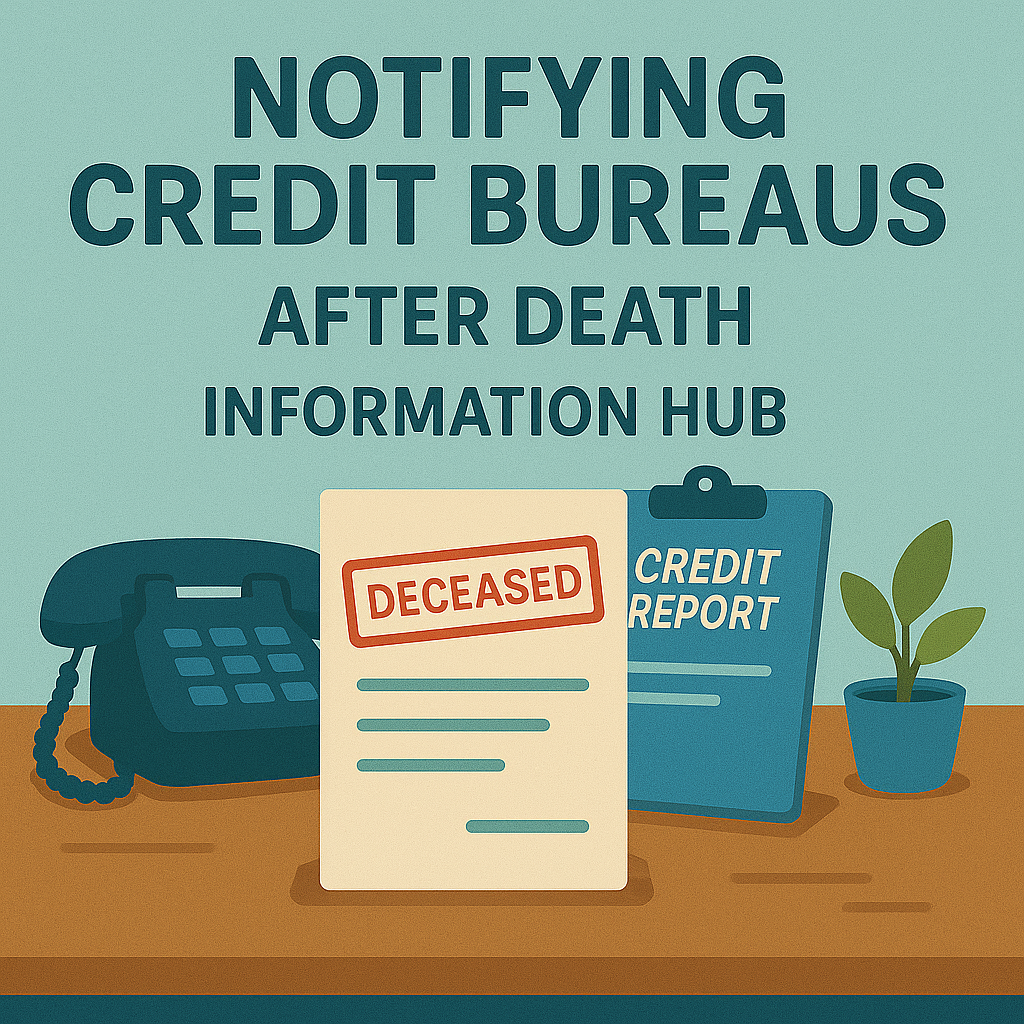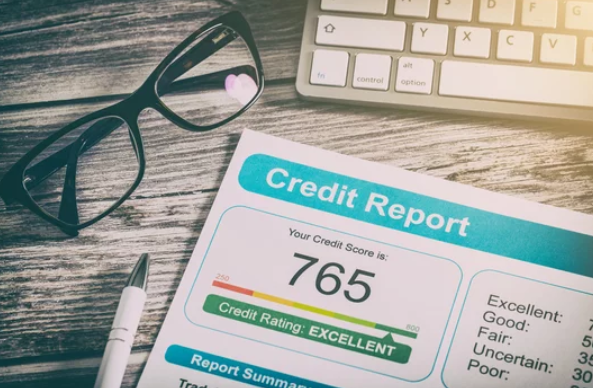Even after death, identity theft is a risk.
The Notifying Credit Bureaus After Death Information Hub
When someone passes away, their credit file doesn’t automatically close. Until the credit bureaus are formally notified, new accounts could still be fraudulently opened in their name. This hub explains why it’s important to report a death to the three major credit bureaus—Equifax, Experian, and TransUnion—and how to do it. Whether you’re an executor or next of kin, taking this step helps protect the estate and prevents identity misuse.

Key Things To Know
Notifying credit bureaus is about more than paperwork. It's a key step in protecting the deceased’s identity and avoiding legal and financial complications.
- You need to contact all three credit bureaus: Each bureau maintains its own separate records. To fully protect the deceased’s identity, you must notify Equifax, Experian, and TransUnion individually.
- You don’t need to wait until probate is complete: You can notify the bureaus shortly after the death is confirmed. The sooner you act, the sooner they can flag the account and prevent fraudulent activity.
- Only certain people can file the notice: Typically, it must come from the executor, personal representative, or surviving spouse. Some bureaus accept a notification from immediate family with proof of relationship.
- You’ll need key documents: Most bureaus require a copy of the death certificate, proof of your identity, and legal documentation showing your relationship to the deceased or your authority to act on their behalf.
- They won’t close the file right away: Once notified, the credit file will be flagged as “deceased,” which prevents new accounts from being opened. It may stay in place for several months to support probate and estate claims.
How to Notify the Credit Bureaus After a Death
Notifying the credit bureaus helps prevent identity theft, blocks new account openings, and protects the estate. Here's how to do it, step by step.
Step 1: Gather the documents you’ll need
You’ll need to include copies of:
- The death certificate (certified is best)
- Your government-issued photo ID
- Legal documents proving your authority (e.g., Letters Testamentary, or a marriage certificate if you're a surviving spouse)
Step 2: Write a formal notification letter
Your letter should include:
- The deceased’s full name, Social Security number, date of birth, and last known address
- The date of death
- Your name, relationship to the deceased, and contact information
- A request to flag the file as "Deceased" and to block any new credit activity
Step 3: Mail the letter and documents to each credit bureau
Send separate mailings to each of the three bureaus. Use certified mail or another trackable method so you can confirm delivery.
Mailing addresses:
- Equifax: P.O. Box 105139, Atlanta, GA 30348-5139
- Experian: P.O. Box 4500, Allen, TX 75013
- TransUnion: P.O. Box 2000, Chester, PA 19016
Step 4: Request a copy of the deceased’s credit report
This helps you check for unknown accounts or suspicious activity. You may need to complete an additional form or send more documentation to get the report.
Step 5: Keep records of everything you send
Make copies of your letters and documents. Track the dates you send them and when you receive replies. Store these in your CLEAR Kit or estate binder for safekeeping.
Articles
Frequently Asked Questions
Disclaimer: The information provided on this website and by Buried in Work is for general informational purposes only and should not be considered legal advice. Please consult with a qualified attorney or subject matter expert for advice specific to your situation.




